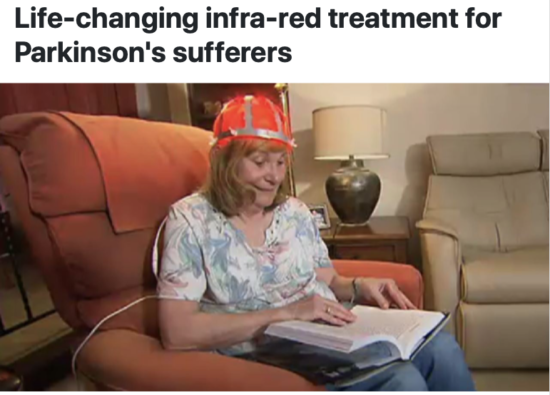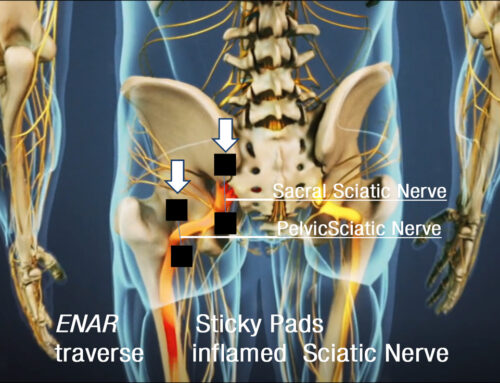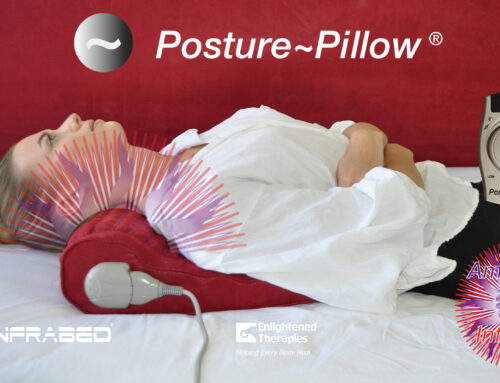A new treatment for Parkinson’s disease is set to be trialled in Sydney following reports of positive results using light therapy. LINK
Results from a previous light therapy trial in Adelaide published in the BMC Neurology journal, showed enhanced senses and improved cognition, mood and sleep, mobility, balance, and fine motor skills among patients.
The trial conducted with Parkinson’s SA, used the light therapy known as photobiomodulation (PBM) on two small groups of patients, all diagnosed with Parkinson’s disease. The study reports no adverse side effects and that the therapy was “a safe and potentially effective treatment”.
For 75-year-old Parkinson’s sufferer Margaret Jarrett, (pic Channel 7) who has been a participant in medical trials of the infra-red relief. She used a laser light device clinically for 12 weeks, and for 40 weeks from home. “I don’t know how it’s happening, but it’s happening and that’s all I care about,” she said. “Some people regained their sense of smell, some people have improved sleep, and some people had improved microbiomes. So, improved gut health,” Parkinson’s SA executive Olivia Nassaris said of the treatment.
Parkinson’s disease is an incurable, progressive neurological illness which effects between 10-15 million people worldwide. It’s the world’s fastest growing neurological disease, with symptoms including tremors, muscle rigidity, difficulty walking and swallowing, loss of smell, depression and anxiety. Caused by a lack of dopamine, a chemical produced by both the brain and the gut to help promote and control body movement, the light therapy treatments work by stimulating dopamine production in the gut.


